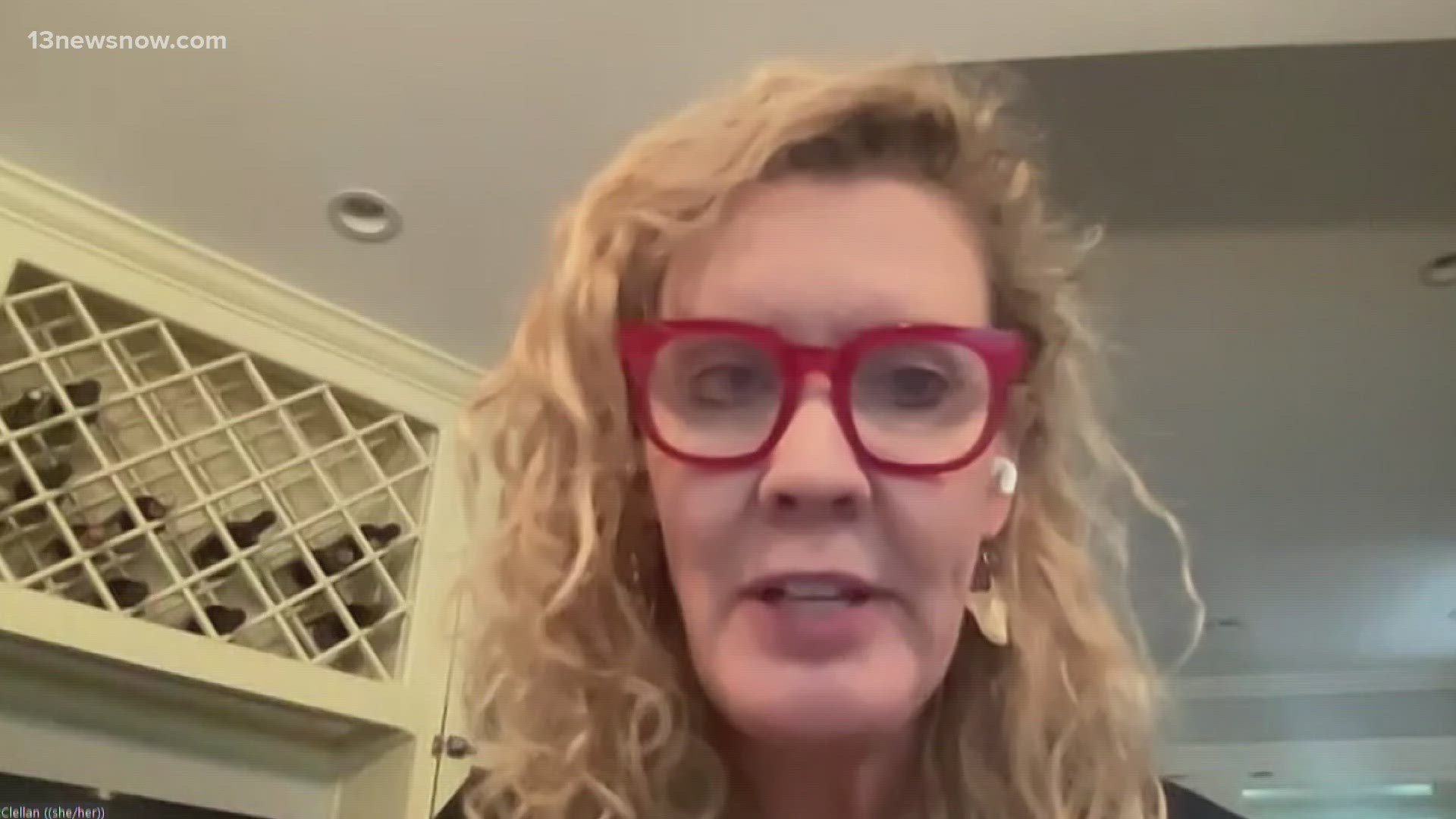NORFOLK, Va. — People are pushing back against Virginia’s pending withdrawal from the Regional Greenhouse Gas Initiative.
Advocates and lawmakers from Hampton Roads came together for a virtual protest Monday afternoon, discussing the importance of the program that puts a cap on carbon dioxide emissions from power plants.
Supporters talked about the impact on Virginia, especially in the Tidewater region. Norfolk City Councilwoman Andria McClellan spoke on the role funding plays in the Mermaid City alone.
"RGGI is literally a drop in the bucket and if we can't save this, how in the hell are we going to fund everything else that we need to do?" McClellan asked.
She continued: "At a minimum, we've got to stay in RGGI and then add to. The last thing we need to be doing is reversing course."
The meeting comes as several environmental groups are suing Virginia Gov. Glenn Youngkin's administration, arguing the 2020 Clean Energy and Community Flood Preparedness Act requires the state to participate in the program.
In a process initiated by Youngkin's administration and voted on by the Virginia Air Pollution Control Board, the withdrawal was done by repealing the regulation the state used to participate in the program, as opposed to a repeal passed by the Virginia General Assembly.
Under the repeal, Virginia will leave RGGI on Dec. 31, 2023, which is the end of the program's control period that started on Jan. 1, 2021.
RGGI puts a cap on carbon dioxide emissions from power plants that will get stricter over time across 11 states: Connecticut, Delaware, Maine, Maryland, Massachusetts, New Hampshire, New Jersey, New York, Rhode Island, Vermont and Virginia.
Power companies have to acquire allowances for every short ton of carbon dioxide they emit, which are distributed at quarterly actions. During Virginia's participation, the proceeds went to energy-efficiency programs for low-income Virginians and the Community Flood Preparedness Fund (CFPF), but the withdrawal leaves their funding sources in question.
The goal with RGGI is to incentivize power companies to move toward clean energy and reduce emissions, but Youngkin has argued the program doesn't serve its purpose while acting as a tax on Virginians. He believes withdrawal via regulatory action as opposed to action by lawmakers was legal.

